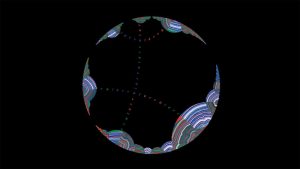Terra
Lisbon Architecture Triennale
September 29 – December 5, 2022
Welcome to Terra, the 6th Lisbon Triennale 2022 taking place next fall. A manifesto expressed as a call to action with different meanings and scales, proposing a reflection upon challenging settings that require a paradigm shift from a linear growth model to a circular evolutionary model.
Chief curators Cristina Veríssimo and Diogo Burnay introduce a 10-week diverse programme of events where four interconnected exhibitions stand out displaying different approaches, geographies and culture to the concept of Terra: this may be a habitable planet or matter for cultivation; it may be in excess or lacking; an obstacle or an element in the construction of communities. These outlooks are brought forward in a forum where community, territory, city and landscape are not explored as an eco-product, but as a body in distress upon which different perspectives operate to work out possible responses. These are the four curatorial lines:
Cycles revolves around a storyline in five main chapters – setting, salvaging, furbishing, disassembling, and circulating complete the circuit of a circular model around which architecture may be organised. Curated by Pamela Prado and Pedro Ignacio Alonso, it introduces the idea that all design must be re-design, providing a critical view on innovation. By outlining the entanglement between architecture and circular economies, and avoiding the excessive use of terms such as ecology, sustainability or resilience, the exhibition focuses on displaying the cycles of architecture and building. It therefore revises the current standing of architects, no longer within linear or pyramidal hierarchies, but integrating new kinds of transdisciplinary loops.
How can design and architecture address a period of inequality and rewrite the canon? Multiplicity examines contemporary structures where design and architecture operate by presenting a sequence formed by agenda, hacks, systems, production and canons. Tau Tavengwa and Vyjayanthi Rao explore architecture’s self-change while embracing complexity and retaining relevance, featuring practitioners and thinkers whose work redefines the scale of operation and methods to tackle global challenges, and how architecture is changing itself. The process is charted through video, models, artwork, photography and drawings, and explores how architecture and design are being called to respond to a world in multiple states of flux at both micro and macro scales.
The broken city, where one third of humanity dwells, desperately screams for the attention of architects. Retroactive examines how certain infrastructures can be the means to embrace this mission, a suturing tool that celebrates their current existence, their distribution around the world, and their chances of becoming worthy dwelling spaces. Interventions may be projects that give back spatial dignity and belonging, by structuring basic needs and services through the design of public facilities, reconciling diverse necessities by building a bond between people and their context. Worldwide migration, land tenure, water, sanitation, overcrowding, waste, violence, mobility, and geographical vulnerability are the topics addressed by José Pablo Ambrosi and Loreta Castro Reguera.
Visionaries will focus on realised and realisable visions by architects, artists, designers, and scientists who aim to systematically change the world. Among our visionaries are those who try to impose an alternative order of things and design not just physical structures or objects, but ambitious and, at times, controversial prescriptions for future action. Anastassia Smirnova is interested in new models and prototypes that are not supposed to be simply replicated, but can be interpreted in multiple productive ways. All works are seen in the context of the current debate about planetary strategies. Each exhibit, in one way or another, responds to the challenge of design in the age of the next grand narrative.
The 6th edition of the Lisbon Architecture Triennale, Terra, also materialises in the outcome of three worldwide calls, two of which are still open:
A pivotal voice is handed over to centres of knowledge in the 6th Lisbon Triennale Millennium bcp Universities Award Competition, where universities worldwide will be given space in the four main exhibitions. For the first time, the call is open to two levels of participation, master’s degrees and research centres. Enrolment by January 7.
New voices and new practices are also supported through the Lisbon Triennale Millennium bcp Début Award, a worldwide competition open to architects or studio collectives under 35. The celebration of young practices will contribute to their creative and professional growth at a crucial stage in their career. The call is open until February 28.
Independent Projects will also add to the reflection, spanning multiple formats, such as self-financed installations, exhibitions, workshops, publications, conferences, performances, films or debates. The 67 worldwide applications for this call, which was open until November 1, 2021, are now under evaluation. The results will be announced on January 25, 2022.
Not least of all, Terra will also accommodate our international conference series Talk, Talk, Talk, a collection of books, and a Lifetime Achievement Award.
The 6th Lisbon Triennale is an open platform for the plurality of contemporary architectural thinking and practice. Find more about the programme here.


